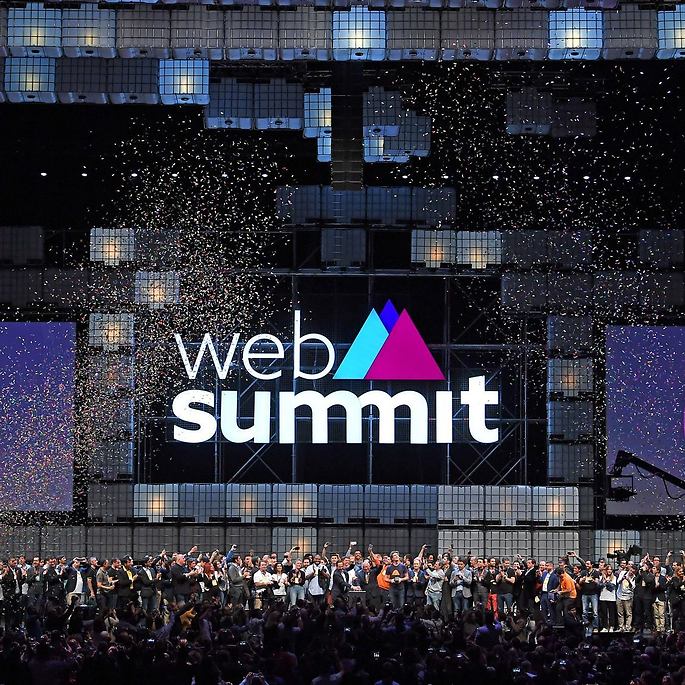All ecosystem everything, Swedish Hotspot and food for thought during Web Summit 2017. Here's what didn't make it in the 140 characters.
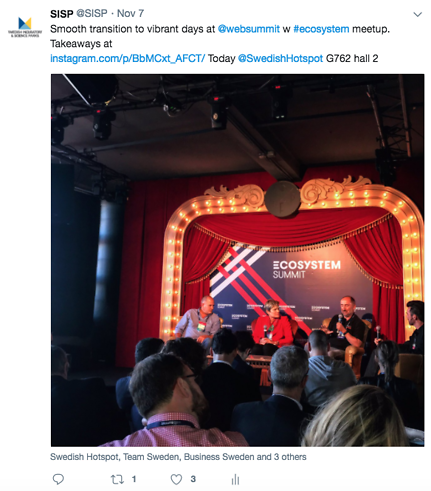
All ecosystem everything
First up was a smaller ecosystem summit when touching ground in Lisbon. A smooth transition into vibrant days at Web Summit 2017.
The room was packed with other ecosystem builders, gathering in roundtables sharing thoughts on impact measurement, driving change through policy, and how to engage corporates and innovation hubs in sustainable impact and programming.
Trying to make sense out of what is what and how the ecosystem’s connected, the challenge in definitions really is a universal one. How do you define an incubator and where do you draw the line? At what point is it instead an accelerator, a “hub” or just a co-working space?
Definitions differ from country to country, city to city – and even within local ecosystems. Add to this, new innovation hubs are popping up (#19) all over the world which is of course both great for competition and a challenge - especially for the ecosystem entrant. From this perspective, the role of innovation supporters becomes crucial as it is it’s our job as to make some sense out of it.
So yes, “everyone’s concerned about creating ecosystem grids” (mapping the ecosystem), and we seem close to obsessed with collecting data for that purpose. However, another interesting comment on the topic was that “it would be more interesting to focus on how we can apply creativity onto that grid”, “putting ourselves out of business” and “creating new” in order to get better.
According to Global Startup Movement - a podcaster traveling the world, creating city portraits from an innovation point of view – dominating accelerators today share two things: a chosen vertical, and a city in which that one vertical makes sense.
Potentially challenging Silicon Valley, micro ecosystems are now emerging all over the world, pointing at the specialized hubs in Sweden, and the emerging fintech space in Mumbai, India as great examples of that.

Swedish hotspot
Zooming out, there were 60 000+ reasons for being at Web Summit but only one Swedish hotspot.
Tech companies, ecosystem builders, investors, and passionate Swedes gathered for the official hotspot launch during the conference together with Business Sweden, the embassy of Sweden in Portugal and the Ministry of Enterprise and Innovation.
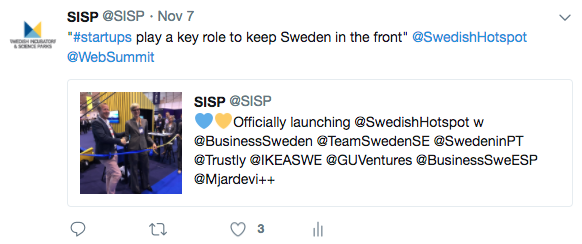
“Startups play a key role to keep Sweden in the front" said state secretary Elisabeth Bakteman in her opening speech while, instead of cutting the blue yellow ribbon, she tied together.
The hotspot then turned into an investor startup networking lunch, a no-stage stage hosting keynotes and fireside chats, and a perfect platform for conversation during the week.
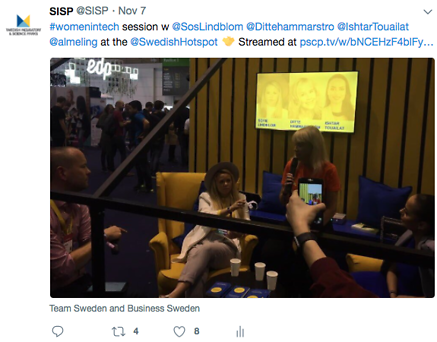
Trustly’s Vice President of Marketing Stefan Backlund guested the no-stage speaking about the future face of FinTech, and IKEA Portugal’s Digital Manager Cristina Maia shared thoughts on democratic design, smart lightning and how technology is shaping life at home.
Another best of was a fireside chat on the strengths of women's skills in tech, with prominent Swedish profiles Ishtar Touailat, Head of Innovation Incubation at Tieto, Ditte Hammarström, co-founder of the design community Snowfire, and Sofie Lindblom, CEO & Co-Founder of ideation360. Moderated by Jonas Almeling, Head Innovation & Ecosystem at Business Sweden, the session shed light on diversity and how we can get better at it.
So as a super tiny but shiny space (Sweden in a nutshell), the hotspot really lived up to its name, attracting people to stop by and start a conversation.
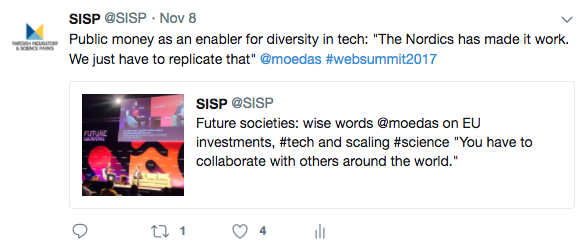
Food for thought
Web Summit also brought global brain circulation and food for thought.
EU commissioner Carlos Moedas said wise words on whether benefits of publically funded research and innovation can continue to outweigh the cost.
“You can now 3D print houses for 35 euros. Imagine what that can do for people's lives.”
Moedas emphasized how countries can’t be single champions today, but that collaborating with others is key in order for science to scale.
He spoke about the European innovation council as a one stop shop for everyone with revolutionary ideas, and how it is crucial to maintain an open and supportive approach to meet those. "Open the doors, don’t question."
Research shows that diverse science groups produce 20% more, Moedas explained as he shared his view on public money as an enabler for diversity in tech:
"We have the Nordic countries that makes it work. We just have to replicate that."
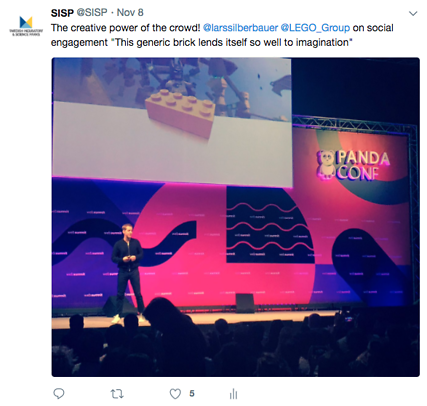
Switching focus, Crunchbase’s CEO Jager McConnell ran a pitch bootcamp at Startup University, pointing out “10 tenants of a shitty pitch” with a solid collection of best and worst practice.
Typical pitfalls are using complex concepts, confusing visuals, too wordy slide decks, buzzword overload, audience-not-in-mind, ego flaunting and unusual metrics. He also pointed out – never ever go with a demo video. Live demonstration or none.
Lars Silberbauer shared Lego’s approach to creating stories, or universes, and the social force behind it.
"This generic brick lends itself so well to imagination".
Building together and Pride of creation are the Lego core pillars to social engagement, drawing on co-creation, the power of the community and social media as an extension for social needs. Silberbauer also highlighted the importance of diversity (starting to see the pattern) when building global movements.

Apart from diversity and women in tech being a hot topic at Web Summit, Artificial Intelligence was of course on everyone’s lips. Catelijne Muller from the EU's economic and social committee spoke about the challenges posed to society by AI, the proposed #humanincommand strategy and how we will need standards for if, how, and when to use AI.
"Data is not fact. Data can be biased, messy, and incomplete."
When deepening on AI, you can’t not talk about the future of mobility. Established companies are definitely seeing the bigger picture, referring to the car as "a part of the new energy ecosystem", recognizing the need for innovating themselves through others, moving from product to service providers, and valuing 3rd party data “as a goldmine”.
As for this, everyone is trying to forecast the future of mobility. So when will self-driving cars really hit the roads? Predictions were 2050 - and 2020 - so somewhere around then seem reasonable.
Family reunion
Web Summit was wrapped up with a full-house #nordicmade summit, coming together as sibling ecosystems (again and again), and inviting the rest of the world to join in.
If you didn’t make it to Lisbon, next hotspot will be set up in Helsinki at SLUSH in just a couple of weeks, and the Nordics are keen on continue the conversation there.
On an ending note, borrowing some very wise words from our friend Jonas Almeling:
"Let's make Sweden the best country in the world - and for the world."
